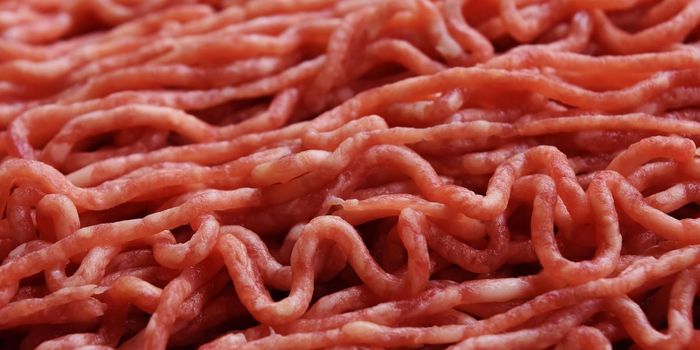Leukemia Treatment Linked to Risk of Ruptured Blood Vessels
A new treatment option for cancer, a Plk1 inhibitor called volasertib, is especially promising for leukemia patients. Unfortunately, the recent discovery of concerning new findings shows that volasertib and other Plk1 inhibitors may have some serious side effects.
These are PET images of the heart of wild-type mice (left) and mice with reduced levels of Plk1 (right). Plk1 mutant mice display increased heart activity (red) as a consequence of vascular defects. Credit: CNIO
Volasertib prevents the overexpression of specific proteins that enable cancer cells to manipulate the cell cycle to enhance their growth and spread. Plk1 proteins, without the influence of cancer, plays a healthy role in the cell cycle: beginning the process, maintaining the process, and completing the process. But when Plk1 becomes dysfunctional, cancerous cells can multiply and promote tumor formation using the same process healthy cell populations use to grow. As an inhibitor of dysfunctional Plk1 proteins, volasertib is now praised as a drug that can overcome failures in chemotherapy and radiotherapy, especially in the cases of chronic and acute myeloid leukemia.
In spite of their therapeutic effect on cancer, long-term use of volasertib and similar drugs can also increase a person’s risk of hypertension (high blood pressure), blood vessel ruptures, and other serious cardiovascular problems. Researchers from the Spanish National Cancer Research Centre are looking into these issues.
"One of the problems we encounter when testing new drugs on patients is that we know very little about the real function of the protein they are targeting. And surprises are not good for the clinical development of these drugs," explained study coordinator Marcos Malumbres. "Many of the proteins tested in clinical trials have been studied mainly in organisms such as yeast or flies or in human cells in cultures. However, these studies do not go far enough in identifying the relevance that a protein can have on a given organ.”
In the case of Plk1 inhibitors, these drugs may prevent the replication of cancer cells and the growing of tumors, but they also negatively impact the body’s intricate network of blood vessels. Half of the mice from Malumbres’s studies, after receiving Plk1 inhibitors, suffered thoracic hemorrhages - bleeding in the chest cavity due to ruptured blood vessels - and died.
Apparently Plk1 proteins are necessary for maintaining healthy, contracting arterial walls, making artery health and blood pressure particularly sensitive to an influx of Plk1 inhibitors meant to treat cancer.
"Unfortunately, all drugs have some type of side effect. The problem is not being aware of them,” Malumbres explained. “We must study the biological functions of a protein very well and in appropriate models before using it as a target on people. This is the only way in which we will be able to use it correctly.”
Scientists haven’t abandoned Plk1 inhibitors as candidates for treating cancer, but learning to control the unintended yet serious cardiovascular side effects will be paramount for cancer patients, who don’t want to transition from one dangerous disease to another.
The present study was published in the journal Nature Medicine.
Sources: Translational Ecology, Spanish National Cancer Research Centre









